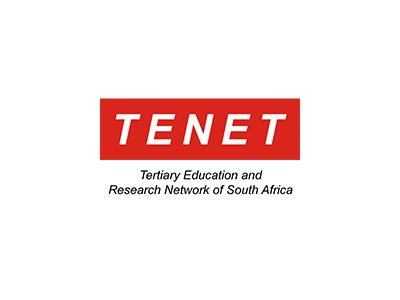
South Africa: lean design for digital libraries
Across the globe, national research and education networks (NRENs) and their member institutions strive to make academic, scientific and archival results and collections available in digital formats. South Africa’s TENET and partners make use of lean versions of the necessary digital libraries, also known as repositories.
“While many South African institutions have their own repositories we see a wide variation within that group. Some of the larger universities have highly sophisticated repositories, including data repositories with accompanying support teams, while others are struggling with outdated systems because they don’t have the support for technical upgrades,” says TENET’s Wesley Barry.
A solution for some institutions can be a minimalistic approach to repository architecture with a reduction on dependencies, particularly network and storage.
Data can be valuable to other fields
For Dr. Benito Trollip, a researcher at the South African Center for Digital Language Resources, the first step is to help South African researchers understand the value of their data for research other than their own:
“Researchers can spend months or even years gathering and refining a data set. They may use this for their own research and publications, but do not see the value this data may have for a researcher in another field. For instance, a political scientist working on a dataset of speeches by African presidents over three decades may not realize the value such data could have for a linguist.”
Trollip argues that making this data available opens possibilities for wider research:
“Not everybody has the funds to, for instance, go into the field and conduct interviews with a particular group of people, but making this anonymized data available could create interesting opportunities for other avenues of research.”
A huge skills shortage
Effective repositories require significant resources. As a first step, particular technical skills are needed. Here comes the first challenge. Repositories are often owned by the university libraries, and that usually requires that the library have their own specialized IT department to manage it. Or failing that, a strong relationship with the university’s central IT to ensure the upgrading of these systems are prioritized.
“The other problem is a huge skills shortage in South Africa in this space. Even if you do train up staff to effectively manage the technical side of the repository, we see such a high level of mobility of university staff in South Africa, especially highly skilled staff, there is no guarantee they will stay,” says Wesley Barry, who’s title at TENET is ORCID support specialist.
ORCID (Open Researcher and Contributor ID) is an internationally recognized identifier, which stays the same irrespective of name or institution changes. ORCID integrates across a wide range of research and academic institutions, and is used by funders, publishers, and institutions to maintain records.
How to raise visibility
Ideally, the underlying software should integrate with common global platforms to reduce the need for time-consuming manual entries while also improving visibility. However, in South Africa – and many other nations – resource limitations must be considered when choosing the repository design, explains Barry:
“There is no one-size-fits-all solution when it comes to repositories. The key is to have in mind, before a decision is made, who your users are, and what their needs are.”
TENET, as the lead organization in South Africa’s ORCID consortium recommends that at the very least, the repository software integrates with ORCID.
For both researchers and their institutions, the value of ORCID is also in increased visibility.
The text is inspired by the article “Accessibility and visibility: considering the needs and contexts of repositories in South Africa” at the TENET website.
Featured image: digital library concept created by generative AI/Adobe Stock.
For more information please contact our contributor(s):

